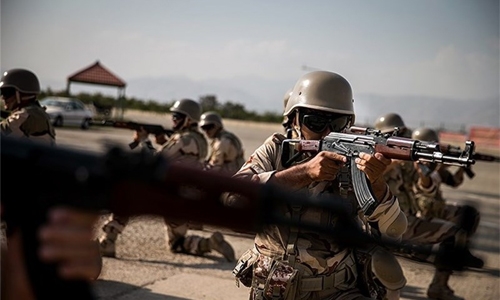Iran exports violence and repression
Over the past decade, the Iranian regime has rapidly expanded its citizens army model — the Basij Resistance Force, a volunteer paramilitary force — inside and outside Iran. “If a dictator could ask a genie for one wish, it would be for one organisation to neutralise all threats and not be expensive,” said Saeid Golkar, a political science professor at the University of Tennessee.
“The Basij is this organisation.” In Iranian schools, businesses, factories and neighbourhoods — in nearly every sphere of day-today Iranian life — more than five million Basij members (known as Basiji) stand ready to defend the regime’s Islamic ideology from internal dissent and foreign threats.
In return, they receive government perquisites, such as medical or housing discounts, job opportunities and acceptance into universities. Golkar calls Iran’s Basij force a “militarised administrative mass organisation (that) anybody can join, from students to doctors.” It is rooted in “every corner of Iranian society.” Members volunteer to indoctrinate locals with the regime’s norms and values, said Golkar. Basiji act as morality police, roaming the streets to enforce a strict dress code for women.
As a paramilitary force, Basiji are frequently called upon to do the government’s internal dirty work. They attacked protesters in the popular uprisings of 2009 and again in early 2018. The Basij recruits schoolchildren as young as 12 years old. They are groomed to become fighters for the Islamic Revolutionary Guard Corps–Quds Force and deployed to Syria.
In 2012, said Golkar, Iran’s Revolutionary Guard Corps organised a National Defence Force in Syria of more than 14,000 Basijlike leaders, a number that grew to 100,000 by 2014 and is much higher now. Iran’s Revolutionary Guard Corps “has also emulated the success of the Basij to mobilise Afghan, Pakistani, Iraqi and Lebanese Shiites to fight for Iran’s interests in the Arab world,” according to Ahmad Majidyar, a policy expert at the Middle East Institute. The Revolutionary Guard Corps has also provided training on creating a similar force to several Latin American countries, Majidyar says.
Related Posts

